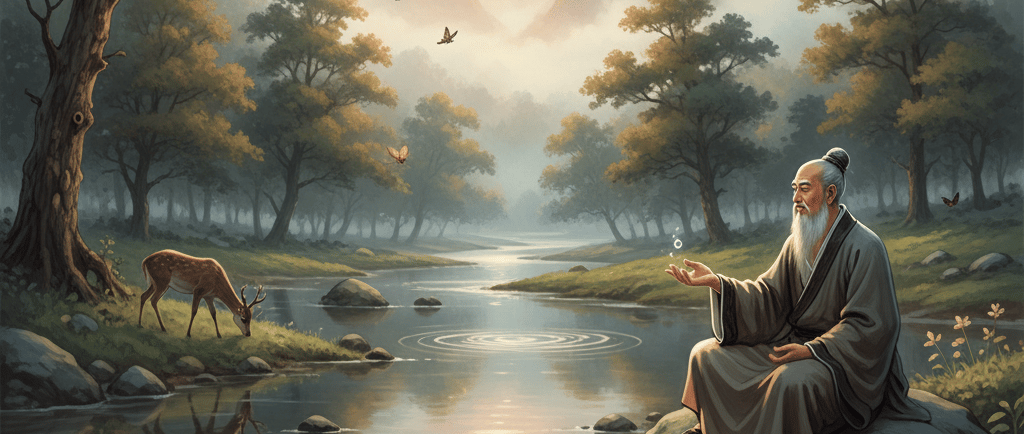The Art of "Wu Wei": Why Trying Less Can Accomplish More in Your Career
In our fast‑paced work culture, we’re taught to grind harder, push more, and hustle endlessly if we want to succeed. But what if the opposite were true? What if the secret to greater success in your career was actually found in *trying less*? This is the idea behind Wu Wei, a central concept in Taoist philosophy that can radically reshape how you think about work, productivity, and fulfillment.
NON-STOIC PHILOSOPHIES
9/6/20252 min read


What is Wu Wei?
Wu Wei (pronounced woo‑way) comes from Chinese Taoism and is often translated as “non‑action” or “effortless action.” But it doesn’t mean laziness or doing nothing. Instead, it’s about:
Working with the flow of life, not against it.
Acting at the right time, with the right energy.
Letting go of unnecessary force and struggle.
Think of a river: instead of swimming upstream, Wu Wei teaches you to use the current to guide you forward.
Wu Wei at Work: Trying Less, Achieving More
So how does this ancient philosophy apply to your career today? Surprisingly well. Wu Wei isn’t about withdrawing from effort—it’s about making your actions focused, aligned, and natural.
Stop over‑controlling: Micromanaging every detail leads to burnout. Trust your preparation and adapt naturally.
Choose better timing: Just as farmers plant in seasons, career growth requires patience and the right moment to act.
Align passion with skills: When your work feels natural to you, success flows more easily.
Instead of constantly forcing success, Wu Wei invites you to create space for it.
Why "Trying Less" Can Be More Powerful
Counterintuitive as it sounds, doing less often gets better results than pushing harder. Here’s why:
Clarity over clutter: Working in alignment helps you focus on what truly matters.
Reduced stress: You conserve energy and avoid draining yourself on unimportant tasks.
Better decision‑making: Being calm and flowing with circumstances leads to smarter, more creative solutions.
Sustainable progress: True success isn’t a sprint—it’s steady, natural growth.
Wu Wei isn’t passivity—it’s purposeful relaxation, like taking your foot off the brake while letting the car roll smoothly forward.
A Simple Wu Wei Practice for Your Workday
You can start applying Wu Wei with a few simple steps:
Pause before reacting – Instead of rushing into emails or meetings, take a breath and respond calmly.
Do less, better – List your top 3 impactful tasks each day and focus only on those.
Trust the process – Let go of trying to control every outcome. Allow space for opportunities to arise naturally.
This approach improves not only productivity but also career satisfaction.
Why Wu Wei Matters in Today’s Career World
We live in an age of constant hustle culture—endless productivity hacks, late nights, and “rise and grind” slogans. But burnout is real, and many professionals are quietly searching for a more balanced way of working.
Wu Wei offers that balance. It reminds us that success and growth aren’t always about harder effort, but about smarter, more natural effort.
Key Takeaways
Wu Wei is a Taoist principle of “effortless action”—working with flow instead of force.
Applied to careers, it means trying less can often accomplish more.
Benefits include reduced stress, improved clarity, and sustainable growth.
Practicing Wu Wei makes work feel natural instead of forced.
Final Thoughts
The art of Wu Wei shows us a paradox: the less you force yourself, the more success can flow into your career. Instead of chasing outcomes with frantic effort, you align with the natural rhythm of life—and discover that trying less can, indeed, accomplish far more.
Maybe the best career strategy isn’t pushing harder, but learning the wisdom of letting go.
Waste no more time arguing about what a good man should be. Be one - Marcus Aurelius
We suffer more often in imagination than in reality - Seneca
Wealth consists not in having great possessions, but in having few wants - Epictetus
